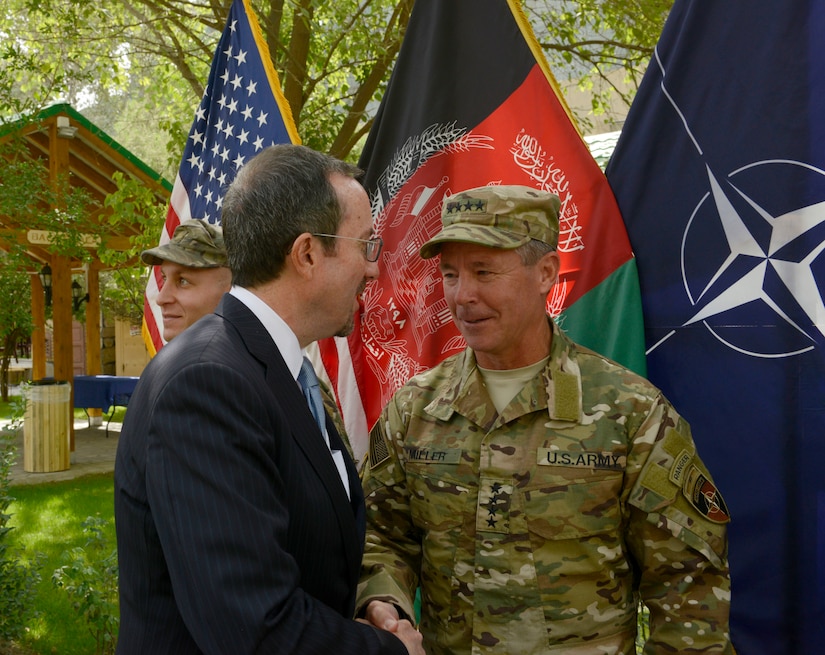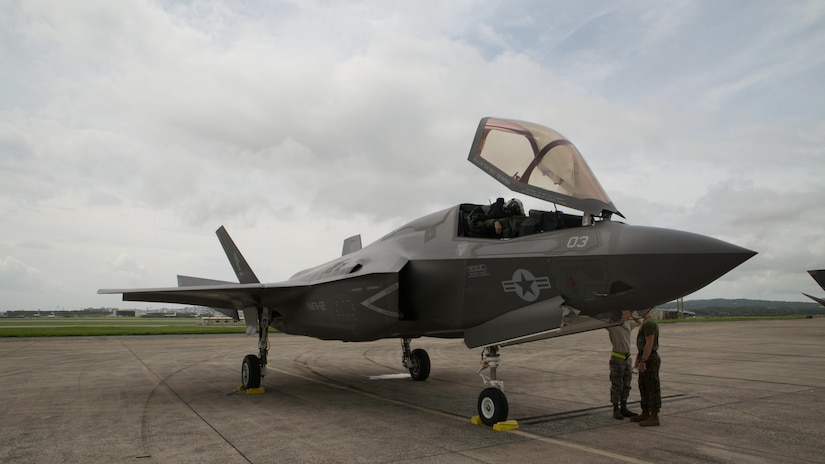By Jim Garamone, DoD News, Defense Media Activity
WARSAW, Poland -- “Why are we here?” is a basic question
that coalition troops in Afghanistan have to answer.
The simple question evinces a lot of different answers, said
Army Gen. Austin S. Miller, the new commander of NATO’s Resolute Support
mission in Afghanistan.
“Each nation has its own objectives, and then there are NATO
objectives,” Miller said prior to the NATO Military Committee meeting here. “So
you get a lot of different answers when you speak to the troops. But it all
comes down to protecting the citizens at home.”
This is easy enough to forget. The events that precipitated
military actions in Afghanistan occurred 17 years ago. To put this in
perspective, some of the coalition soldiers assigned to Afghanistan were a year
old when al-Qaida terrorists killed 3,000 people in America.
They have no direct memories of the planes crashing into the
World Trade Center in New York, or an aircraft slamming into the Pentagon, or
Americans fighting back and forcing a plane commandeered by terrorists to crash
in a field in Pennsylvania. They know about Sept. 11, 2001, because they
studied it, but they don’t have the visceral emotions that those who watched
the Twin Towers fall or counted the number of friends dead in the rubble of the
Pentagon.
Al-Qaida had safe haven in Afghanistan. The Taliban leaders
of the nation protected Osama bin Laden and his lieutenants as they planned the
attack against the United States.
NATO invoked Article 5 of the Washington Treaty that created
the alliance for – so far – the only time in its history, as the nations of the
alliance came to the aid of America in the aftermath of the horrific attack.
Article 5 states that an attack on one member nation is an attack on all.
In the more than 17 years since the attack, more than 1,100
NATO and coalition troops have lost their lives combating terrorism in
Afghanistan. And this is not just an American conflict or problem. Terrorists
have struck London, Madrid, Paris, Nice, Bali, the Philippines, Mumbai and many
other cities and countries.
Ungoverned or loosely governed areas attract terror groups.
They use monies raised from taxing areas they occupy or – like the Taliban and
others – money from illegal activities such as the drug trade to finance their
attacks. They use these safe havens to train new terrorists and indoctrinate
new recruits into the hateful ideologies they espouse.
Making Their Own Countries Safer
Miller, who has been commander of the NATO mission only
since Sept. 2, reminds coalition troops that what they are doing in Afghanistan
makes their own countries safer. They are protecting their fellow citizens.
The “train, advise, assist” mission allows Afghan security
forces to take the fight to the enemy. They are working to give the Afghan
government the security needed to provide stability. That makes the nation
untenable for terrorists who want to make it a safe haven again.
The answer in Afghanistan is reconciliation between the
government and the Taliban. The war has continued for 17 years. NATO and
coalition forces are in for the long haul, and the Taliban cannot hope to wait
out the coalition. The smart option is to reconcile and rebuild Afghanistan
together, the general said.
Terror groups such as ISIS-Khorasan, al-Qaida and others
have no role in a new Afghanistan. Afghan security forces and coalition
operators target those groups to crush them to erase their ideology.
There are many challenges ahead for Miller and the
coalition. There are Afghan elections next month and presidential elections set
for next year. The coalition needs to provide more training for more units in
the Afghan army and police. The Afghan air force needs to continue to grow and
develop to provide support to those on the ground. Neighboring nations need to
do more.
And the coalition troops in the country need to remember why
they are there, Miller said: to protect their own citizens and families.








